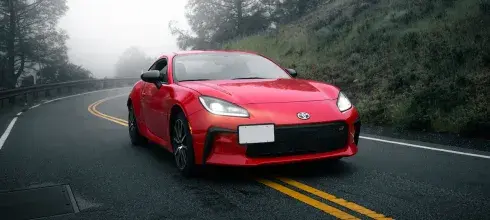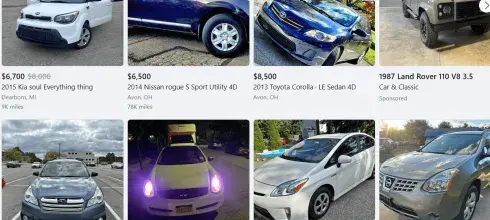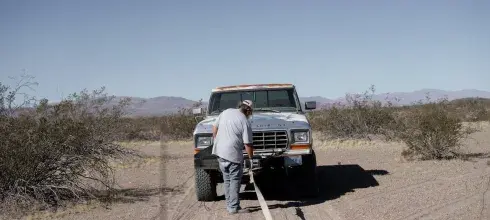
Transporting New Year's Resolutions: The Role of Auto Transport in Change
Over the next 12 months, the transportation industry is expected to witness several advancements. Three of the most exciting trends will be autonomous vehicles, electrification, and MaaS (mobility-as-a-service) providers.
In addition, drones, robots, driverless vehicles, and driverless trucks will be increasingly adopted for autonomous last-mile deliveries.
Other innovative solutions include artificial intelligence (AI), the Internet of Things (IoT), and blockchain deployed to optimize supply chain management.
Businesses are also exploring ways to automate logistics operations by adopting transport software and analytics platforms. The focus for 2024 is not only to improve the overall efficiency of transport operations but also to reach the ultimate goal of sustainability with minimum pollution.
Top Transportation Industry Trends for 2024
- Autonomous vehicles
- Green energy
- Electric transportation
- Artificial intelligence
- Internet of Things
- Mobility as a Service
- Transportation Management System
- Last Mile Delivery
Autonomous Vehicles
Transportation services account for significant pollution and traffic congestion, particularly in urban areas. One solution that’s being explored is using autonomous transportation systems.
Self-drive vehicles use sensors, LIDAR (Light Detection and Ranging), and various safety features to navigate roads. Camera technology is used for reading road signs and seeing them in high resolution. AI algorithms recognize objects on roads and guide vehicles in perceiving their environment. Autonomous vehicles increase road safety and reduce harmful emissions.
In addition, the commercialization of delivery drones is useful for transporting medical supplies, food packets, and more, directly to more remote locations. Drone deliveries or robotics could also help the elderly and enable rapid emergency response. Furthermore, driverless trucks could make the trucking industry more efficient and directly address driver shortage challenges.
Companies that are developing fully autonomous vehicles include:
- Minus Zero is an Indian startup company developing fully autonomous cars for tricky roads. Nature-inspired AI algorithms are used for image recognition and to predict the behavior of surrounding objects in real time. Computer vision rather than expensive LIDARs is used, making the vehicle more economical and allowing for higher frame rates for faster perception.
- Canadian startup NuPort Robotics is helping to automate trucking with its proprietary navigation system. It’s a robot-as-a-service (RaaS) system that’s retrofitted, equipping trucks with high-tech sensors that prevent accidents and enable fuel monitoring.
Green Energy
Green energy in transport encompasses alternative fuels and technologies that help to reduce the industry’s negative impact on the environment. Green alternatives are relevant for all transport modes. For example:
- Shipping: Eco-friendly vessels benefit from reduced emissions of greenhouse gases, energy-efficient propulsion systems, and streamlined hull designs to reduce friction during navigation.
- Alternative fuels: These include hydrogen, liquified gas, synthetic fuels and more to reduce pollution and harmful emissions
- Electric vehicles: Used for transporting goods more sustainably without the need for fuel.
- Trains: Provide a green alternative because they can carry large volumes of goods over long distances, reducing the number of vehicles on the road and advancing the cause of green transportation.
Startups that are championing the green energy revolution include:
- Unleash Future Boats, a German company that has developed CargoOne, a zero-emission electric truck on water. It also builds FutureOne, an electric boat for transporting people and products, powered by green hydrogen and fuel cell technology.
- ARXAX is a UK-based startup building an emission-free transport and logistics ecosystem. Its portal is called H2LLO SMART and it helps transport companies manage their fleet’s cost of ownership using predictive and prescriptive analytics. It has also designed another solution, H2LLO CONNECT, a green refueling infrastructure powered by cloud computing. Using this technology, transportation businesses can quickly connect to refueling stations, reducing carbon emissions.
Electric Transportation
A massive trend in the transportation industry now and in the future is large-scale electrification. Compared to diesel or petrol vehicles, EVs emit fewer greenhouse gases and air pollutants. EVs are not dependent on conventional fossil fuels because they require electricity to recharge their batteries. In addition, the electric motor is more efficient and creates less noise pollution.
In the upcoming months and years, EVs will become more widely accepted for delivery operations and everyday commutes because of solutions such as vehicle-to-grid (V2G), mobile charging, fast charging, new battery innovations, and much more.
Electrification is also being adopted by air transport via electric vertical take-off and landing (eVTOL) aircraft, electric air taxis, and drones.
Some of the companies helping to reduce the negative impact of transportation include:
- Faction is a US-based startup that makes driverless electric vehicles for micro-mobility and micro-delivery. The EVs it designs are compact and perfect for traffic-congested urban roads. As well as being more economical, these small vehicles also reduce emissions and energy consumption.
- Infinite Mobility is a Norwegian startup that manufactures solar-powered electric vehicles for urban mobility and last-mile delivery.
Artificial Intelligence
Artificial intelligence also has an important role to play in the future of transportation. One way it is doing this is by predicting delays in traffic flows. AI algorithms can detect objects and help with the navigation of autonomous vehicles.
Machine learning analyses driver behavior to determine driver drowsiness and improve road safety. AI-powered route optimization speeds up the delivery of goods and digitally matches the demand and supply of stocks to automate freight operations.
AI also helps to reduce traffic congestion and accidents in the transportation industry, while improving navigation safety and the use of autonomous vehicles in shipping.
Internet of Things
The Internet of Things has far-reaching applications, but in the transportation industry, it’s helping make the industry smarter. Some of the ways it’s being used include:
- Embedded sensors for gathering vehicular data to track the condition or performance of transport vehicles
- Traffic congestion systems predict and redirect vehicles to faster routes to speed up deliver
- IoT in vehicles can monitor fuel levels, driver safety, vehicle health
- Connected cars impose speed limits depending on the nature of the traffic
Mobility as a Service (MaaS)
MaaS is helping the transportation industry improve customer comfort and convenience. Thanks to the consolidation of different digital channels, users can plan and book multiple modes of mobility through a single platform. Payment is also simplified thanks to a subscription or pay-as-you-go model.
Thanks to MaaS, users can enjoy the flexibility of combining public and private transportation modes and choose the optimum transport for their needs. Services such as carpooling, on-demand cabs, and bookable intercity travel discourage the need for private vehicle ownership.
Transportation Management System
A transport management system helps businesses save time by automating workflows and optimizing asset utilization. Solutions are available for moving freight of all sizes, including vehicle shipping, using intermodal and international routes. Using TMS, businesses can track drivers, goods, and inventory, enabling improved visibility in the supply chain and addressing inefficiencies.
Some of the newest companies helping with the advancement of TMS include:
- ASIA ONE TMS (AoT) is a Malaysian startup that has designed a transport management system that digitalizes transport operations by enabling truck and driver status visibility and pickup, shipment, and real-time delivery status tracking.
- UK-based startup Trackstride has developed a fleet management software system that can track vehicles in a fleet in real-time, providing insights into route operations, driver behavior, and idle time.
Last Mile Delivery
Also known as last-mile logistics, last-mile delivery encompasses all operations that are required to move goods to the end consumer. Startups are currently developing solutions to transport items to a recipient in the quickest possible way.
Autonomous drones are being used to deliver products to any location, and while they’re not being used for vehicle transport, they are being increasingly used for delivering medicines and grocery items.
Final Thoughts
Transportation is one of the largest industries and it is currently experiencing massive improvements thanks to technological advancements. Fully autonomous vehicles and ships are already here and are set to prevail in the near future. The industry is also witnessing widespread adoption of technologies such as AI and IoT, while businesses are also paying attention to the issue of sustainability and designing zero-emission vehicles and processes.
This post has only scratched the surface of trends that are going to make a difference not just in the next 12 months but even further into the future. As a key player in the transportation of vehicles, SGT Auto Transport will continue to keep its finger on the pulse and keep abreast of the latest changes.







